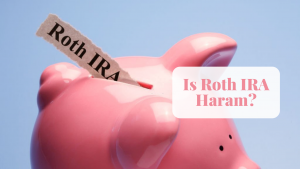Is real estate haram? When it comes to real estate, the question of whether or not it is haram – forbidden by Islam – is a common one. After all, real estate can be a huge financial investment, and many people want to know if they can do so without violating their faith. Read the whole blog below till the end to know the answer to your queries.
What is Haram?
Haram finance is a term used to describe financial practices that are considered to be contrary to the teachings of Islam. This can include activities such as charging interest on loans, speculation and gambling.
There is some debate among Islamic scholars about what exactly constitutes haram finance, but generally it is agreed that anything that involves Riba (interest or usury) is off-limits. This prohibition is based on verses in the Quran that state that Riba is “haraam” (forbidden).
Some Muslims believe that any form of gambling is also haram, as it is considered to be a form of speculation which is forbidden in Islam. Others, however, argue that certain types of gambling, such as betting on horse races, are permissible if the proceeds are donated to charity.
There is also a debate among Islamic scholars about whether or not it is permissible to invest in companies that are involved in activities that are considered haram, such as alcohol or pork production. Some argue that it is acceptable to invest in such companies as long as the investor does not directly benefit from the haram activities. Others, however, believe that any involvement in haram activities is unacceptable and that it is better to avoid them altogether.
The bottom line is that each Muslim must make their own decision about what they consider to be haram finance. What is permissible for one person may not be permissible for another. It is important to always seek guidance from a qualified Islamic scholar before engaging in any financial activity.
What is Real Estate?
Real estate refers to land, buildings, and other physical properties, as well as the rights and interests associated with them.
Advantages of real estate include:
- Potential for appreciation in value over time, providing a long-term investment opportunity
- Possibility for generating rental income
- Diversification of investment portfolio
- Ability to use leverage through mortgages to acquire properties
Disadvantages of real estate include:
- High upfront costs, including down payment and closing costs
- Potentially lengthy process to acquire or sell property
- Risk of market fluctuations and economic downturns affecting property values
- Requires ongoing maintenance and upkeep
- Can be subject to government regulations and zoning laws
Is Real Estate Haram or Halal?
If you’re considering purchasing property, you may be wondering if real estate is haram (forbidden) in Islam. While there is some debate about whether working in real estate is haram or halal, in general, real estate is permissible. However, there are some circumstances in which it may be considered haram.
For example, if the process of buying or selling property involves unfair practices, such as riba (usury) or gharar (uncertainty), then real estate would be considered haram.
It’s also important to consider the purpose of the property you’re buying. If you’re purchasing a property for investment purposes, you need to be careful that you’re not participating in speculation (another forbidden practice in Islam).
So, if you’re thinking of buying property, make sure you do your research and consult with a qualified Islamic scholar to ensure that the transaction is permissible.
Source Reference – The above information is verified via Islam Question and Answer.
FAQ
What makes real estate haram in Islam?
Real estate can become haram in Islam if it involves certain practices such as charging or paying interest, engaging in fraudulent behavior, or participating in speculative transactions.
Is buying and selling property allowed in Islam?
Yes, buying and selling property is allowed in Islam as long as it is done in a halal manner, without engaging in any haram practices.
Can Muslims invest in real estate?
Yes, Muslims can invest in real estate as long as the investment is halal and does not involve any haram practices.
Is renting a property halal in Islam?
Yes, renting a property is halal in Islam as long as the rent is fair and the contract is based on mutual agreement between the parties involved.
Conclusion
It’s a tough question to answer definitively, as there are many different interpretations of what is considered “haram” (forbidden) in Islam. However, based on the most commonly-cited interpretations, it seems that real estate investment may indeed be haram. This is because real estate speculation is often seen as a form of gambling, which is strictly forbidden in Islam.
Additionally, many Islamic scholars believe that charging interest on loans is haram, and since mortgages typically involve interest payments, this could make purchasing property with a mortgage haram as well. Of course, there are always exceptions to every rule, so it’s best to consult with a religious scholar if you’re unsure whether or not a particular real estate investment is permissible.
Also explore these financial debates : Is 401k Halal?, Is Health Insurance Haram?, Are Bonds Haram?, Are Credit Cards Haram?, Is Life Insurance Haram?, is option trading halal?, Is Investing in Stocks Haram?, is cfd trading halal?, Is Mortgage Haram? and many more at Halal Haram World.








